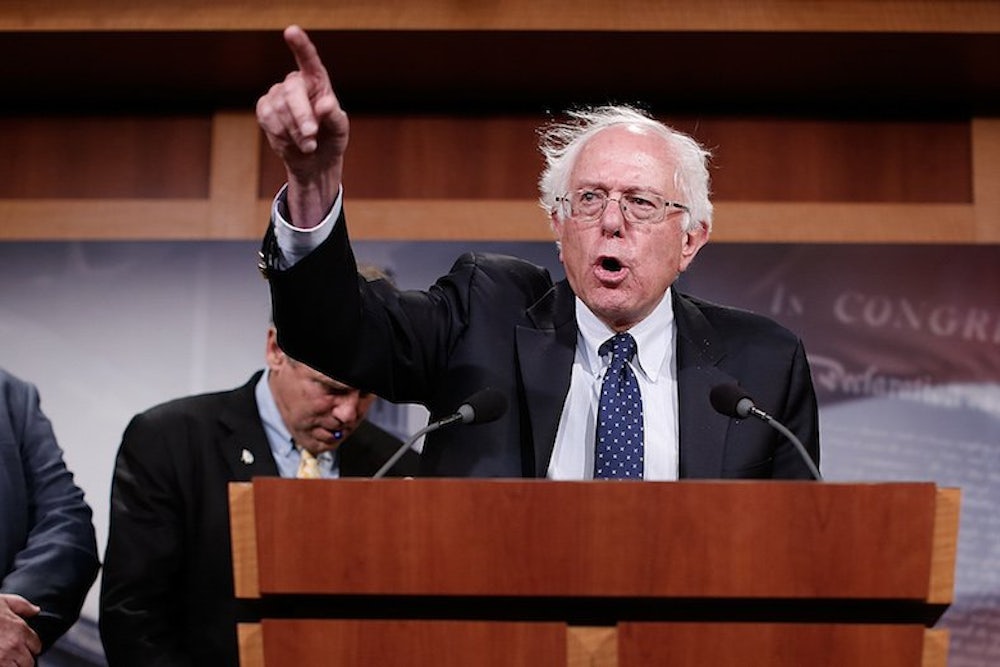The Senate legislation to approve the Keystone XL pipeline faces a dead-end at the president’s desk, unless Senate Republicans pick off a few more Democratic votes to override Barack Obama's promised veto. That's why Majority Leader Mitch McConnell has proposed an open amendment process, hoping to drum up bipartisan support before the Senate votes next week.
Senator Bernie Sanders has taken him up on the offer. He plans to introduce a "sense of Congress" resolution that simply affirms climate change is real, caused by the burning of fossil fuels, and must be addressed. It would say that Congress “is in agreement with the opinion of virtually the entire worldwide scientific community” and "climate change has already caused devastating problems in the United States and around the world." The question is whether McConnell would block this amendment before it came to a vote. On Tuesday afternoon he told reporters, "We are not anxious to block anybody's amendment, we are wide open.”
This means the Keystone XL debate is about to get a lot more interesting.
The climate amendment is pure messaging. It does nothing to address the problems of global warming. Still, it will put many Senators in an uncomfortable situation. During the midterms, Republicans were anxious to ignore questions about man-made global warming. They ducked reporter and constituent questions about pollution with excuses like, "I'm not a scientist."
A vote on Sanders' resolution is tougher to dodge. One senator facing trouble is Mark Kirk, who faces reelection in 2016 in Illinois. This month, he seemingly reversed his position on climate science to climate denial in an interview with E&E Daily (behind a paywall). He argued “political correctness took over climate science," then walked back those comments again to say he still believes humans have caused climate change. Now, he’s in the awkward position of having to vote on it. The Washington Post's Greg Sargent also points to Marco Rubio and Ted Cruz as interesting politicians to watch because of their presidential ambitions (since both have rejected science in the past, I’d expect them to do the same again).
Democrats have offered these resolutions before. Usually, they are blocked before a vote, like a resolution proposed by Senator Amy Klobuchar last July after the Senate's most famous climate change denier James Inhofe objected. A similar resolution by Sanders was tabled last week in committee.
A climate resolution clearly won't pass. According to a count from ThinkProgress, 70 percent of Republican Senators are on the record saying humans aren’t responsible for global warming. That is the opposite of what a majority of moderate Republicans think, says a study published Monday by the Yale Project on Climate Change Communication. More than 60 percent of moderate and liberal Republicans accept climate change is happening. It's the Tea Party wing of the party that doesn't acknowledge it.
